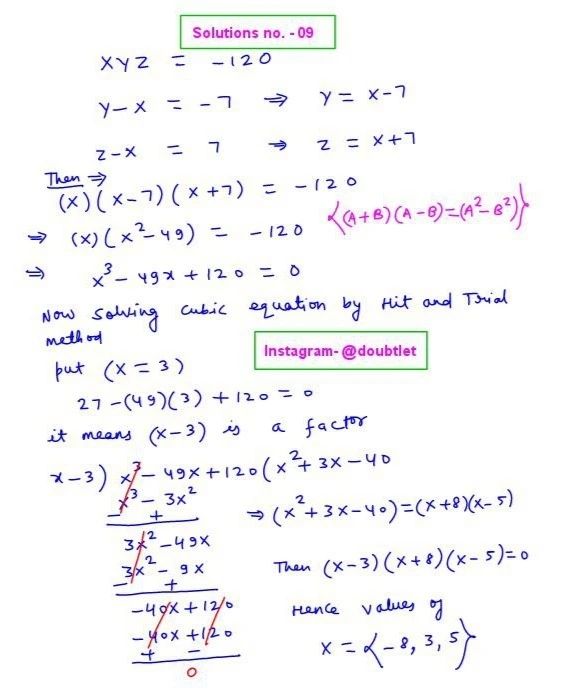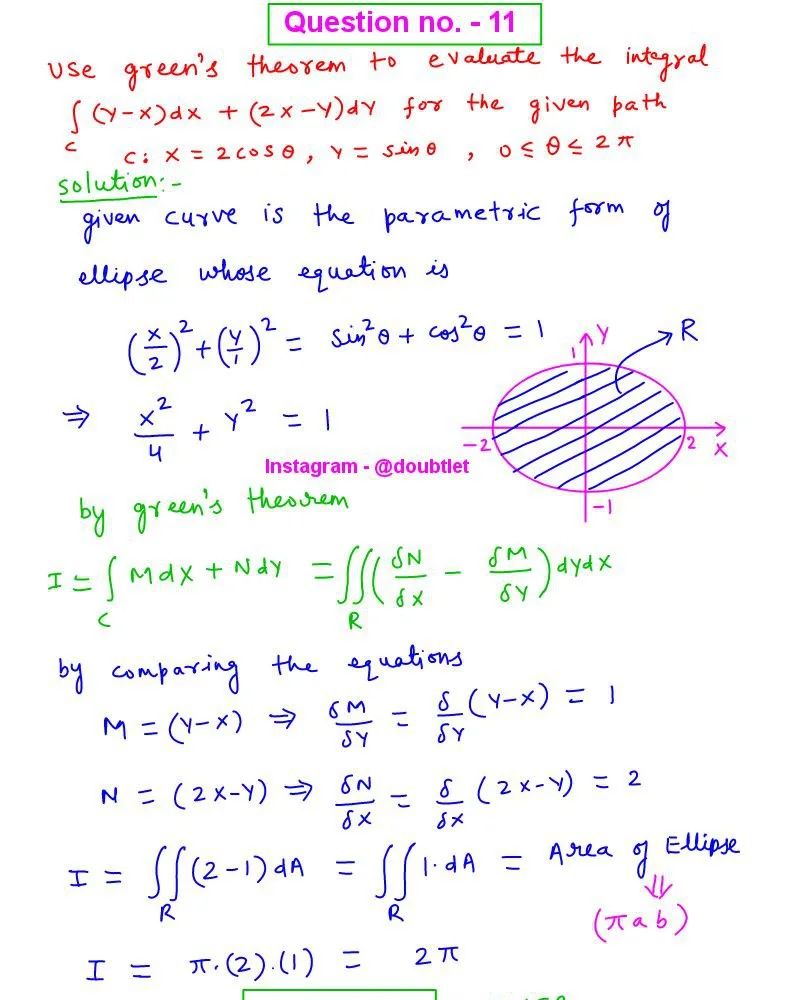
Neetesh Kumar | December 8, 2024
Calculus Homework Help
This is the solution to Math 132
Assignment: 7.2 Question Number 7
Contact me if you need help with Homework, Assignments, Tutoring Sessions, or Exams for STEM subjects.
You can see our Testimonials or Vouches from here of the previous works I have done.
Get Homework Help
Step-by-step solution:
We aim to evaluate the definite integral ∫0π/23sin2(x)cos2(x)dx.
Step 1: Factor out the constant
The constant 3 can be factored out of the integral:
∫0π/23sin2(x)cos2(x)dx=3∫0π/2sin2(x)cos2(x)dx
Step 2: Use the double-angle identity
To simplify sin2(x)cos2(x), use the double-angle identity:
sin2(x)cos2(x)=41sin2(2x)
Substitute this into the integral:
3∫0π/2sin2(x)cos2(x)dx=3∫0π/241sin2(2x)dx
Simplify:
3∫0π/2sin2(x)cos2(x)dx=43∫0π/2sin2(2x)dx
Step 3: Use the power-reduction formula
To simplify sin2(2x), use the power-reduction identity:
sin2(2x)=21−cos(4x)
Substitute this into the integral:
43∫0π/2sin2(2x)dx=43∫0π/221−cos(4x)dx
Simplify:
43∫0π/2sin2(2x)dx=83∫0π/2(1−cos(4x))dx
Step 4: Separate the integral
Distribute the integral:
83∫0π/2(1−cos(4x))dx=83(∫0π/21dx−∫0π/2cos(4x)dx)
Step 5: Evaluate each term
-
For ∫0π/21dx:
∫0π/21dx=[x]0π/2=π/2−0=π/2
-
For ∫0π/2cos(4x)dx:
The integral of cos(4x) is 4sin(4x).
Evaluate:
∫0π/2cos(4x)dx=[4sin(4x)]0π/2=4sin(2π)−4sin(0)=0−0=0
Step 6: Combine results
Substitute back into the expression:
83(∫0π/21dx−∫0π/2cos(4x)dx)=83(π/2−0)=83⋅2π=163π
Final Answer:
∫0π/23sin2(x)cos2(x)dx=163π
Please comment below if you find any error in this solution.
If this solution helps, then please share this with your friends.
Please subscribe to my
Youtube channel for video solutions to similar questions.
Keep Smiling :-)














Leave a comment